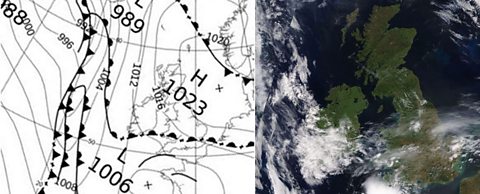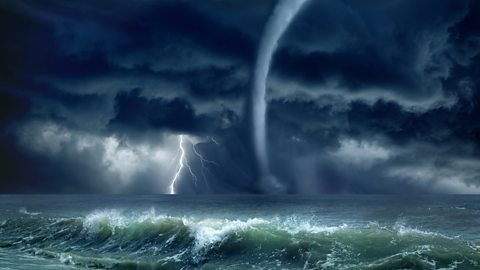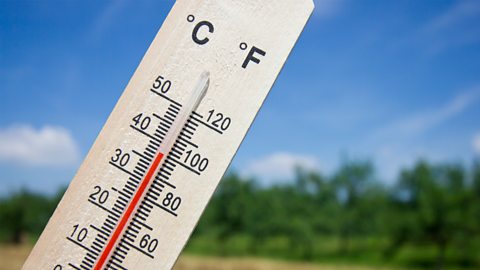What factors affect climate?
1. Latitude or distance from the equator ÔÇô Temperatures drop the further an area is from the equator due to the curvature of the earth. In areas closer to the poles, sunlight has a larger area of atmosphere to pass through and the sun is at a lower angle in the sky. As a result, less energy is received at the surface and temperatures are cooler.
2. Prevailing wind - The prevailing wind is the most frequent wind direction a location experiences. In Britain the prevailing wind is from the South West, which brings warm, moist air from the Atlantic Ocean, particularly the North Atlantic Drift. This contributes to the frequent rainfall.
Factors affecting climate
3. Altitude or height above sea level - Locations at a higher altitudethis is the height in relation to sea level have colder temperatures. Temperature usually decreases on average by 1┬░C for every 150 metres in altitude. This is because air at higher altitudes is thinner with fewer molecules, which makes it very difficult for heat to be transferred between the molecules as they are further apart.
In summer, latitude is the main factor influencing UK climate because the Northern Hemisphere is tilted towards the Sun, which means the UK is closer to the Sun and therefore, the solar radiation is more directly overhead and more intense.
However, in winter the UK is tilted away from the Sun, which means it has less influence. The prevailing winds blowing across the North Atlantic Drift ocean current have more influence in making the UK warmer than other places on the same latitude.
4. Distance from the sea ÔÇô Oceans heat up and cool down much more slowly than land. This means that coastal locations tend to be cooler in summer and warmer in winter than places inland at the same latitude and latitudeTemperatures drop the further an area is from the equator due to the curvature of the earth. In areas closer to the poles, sunlight has a larger area of atmosphere to pass through and the sun is at a lower angle in the sky. As a result, more energy is lost and temperatures are cooler.. Glasgow, for example, is at a similar latitude to Moscow, but is much milder in winter because it is nearer to the coast than Moscow.
Test yourself
More on Weather and climate
Find out more by working through a topic
- count3 of 4

- count4 of 4

- count1 of 4
